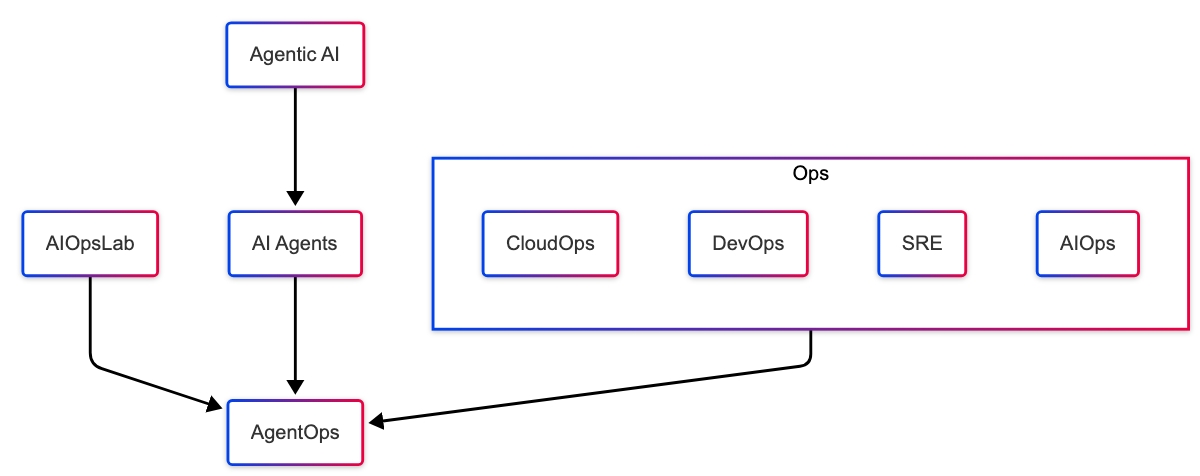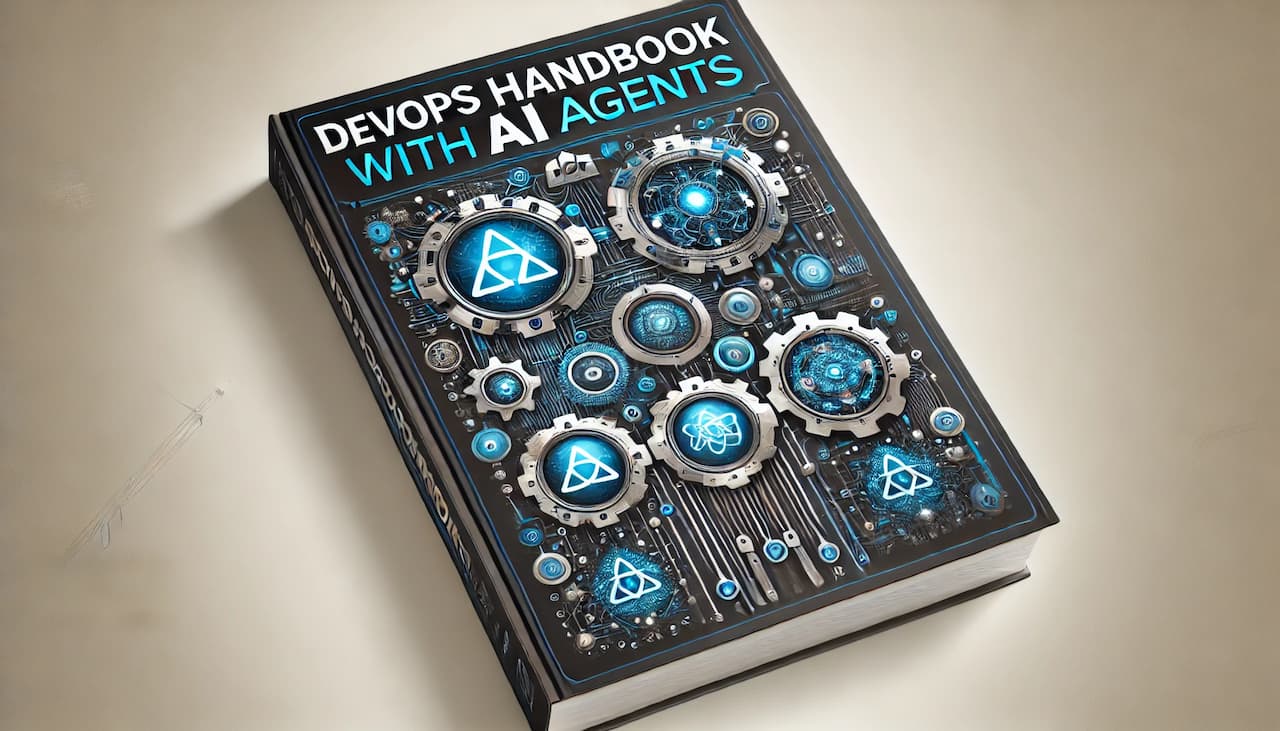
Bridging the Productivity Gap with an Agentic Future: AI-Driven DevOps
As global markets change quickly, businesses across all industries face significant challenges, slowing their growth and competitiveness. These challenges are caused by a mix of issues that affect businesses at many levels. Rapid technological advancements have led to a shortage of skilled professionals, creating gaps made worse by worldwide competition for talent. Many businesses also need help with outdated systems that increase costs and delay projects, making them less responsive and more prone to mistakes.
Additionally, meeting diverse regulatory requirements takes up many resources, shifting focus away from main business activities. Economic changes, like inflation and market volatility, force businesses to quickly adjust their strategies to stay profitable, often needing to do more with fewer resources. Integrating new technologies is crucial, but it can temporarily disrupt business operations and requires significant investment in employee training. Moreover, an aging workforce needs ongoing training to keep up with new technologies, ensuring they continue to contribute effectively to the business’s productivity. These challenges are complex and require companies to adapt and improve their operations to stay competitive.
“AI is expected to contribute a significant 21% net increase to the United States GDP by 2030, showcasing its impact on economic growth”. Statista
Understanding AI Agents and Agentic Workflows

AI agents are sophisticated systems equipped with the capability to perform autonomous tasks through what are known as agentic workflows. These workflows empower AI agents to act independently, making decisions and executing tasks without human intervention. Achieved through advanced AI technologies, this autonomy allows agents to assess situations, make judgments, and interact intelligently with their environments. By integrating these capabilities into the fabric of business operations, AI agents dramatically increase efficiency and adaptability, transforming traditional workflows into dynamic, responsive processes.
Strategic Impact of AI Agents on Productivity
AI agents bring a transformative impact to productivity by automating routine and time-consuming tasks. This automation allows human employees to concentrate on higher-value activities that require creative problem-solving, significantly enhancing productivity. Additionally, AI agents come equipped with protocols to monitor and counteract security threats, safeguarding operational data and ensuring compliance with evolving regulatory landscapes, an essential factor in maintaining business integrity.
The strategic management of operations by AI agents leads to lower operational costs and improved output quality, directly benefiting the bottom line. This efficiency turns resource management into a strategic advantage. Furthermore, AI agents help businesses and economies handle inflationary pressures more effectively by enhancing productivity and streamlining output. More efficient production means that goods and services can be provided at lower costs, contributing to deflationary pressure on prices and improved economic stability, thus facilitating overall economic strength.
Addressing the Global Productivity Challenge with AI Agents

Countries and corporations alike are confronting significant hurdles in boosting productivity. Resource gaps and operational inefficiencies hinder output and growth. AI agents present a promising solution by harnessing the power of AI to automate complex workflows, enhance decision-making, and optimize operational efficiency, key factors that can help control inflationary pressures and foster economic stability.
“Whether you are building or applying AI, model optimization and evaluation is key to unlock performance and ROI.” Scale Zeitgeist AI Readiness Report 2024
Solving the Resource Gap
AI agents are designed to augment the workforce, addressing the shortages of skilled professionals in sectors like engineering. These agents effectively bridge the resource gap by automating routine and complex tasks. This automation frees engineers and other professionals to concentrate on strategic projects, relieving them of operational constraints and repetitive tasks.
Training and Developing Current Employees
AI agents can also play a crucial role in employee training and development. Equipped with capabilities to provide real-time feedback and guidance, these agents act as on-the-job trainers. They help accelerate the learning process for junior staff and reduce the steep learning curve associated with complex technical domains. AI agents do this by offering personalized learning experiences tailored to individual needs, ensuring efficient grasping of complex concepts. They use interactive simulations for hands-on practice, solidifying knowledge and making tasks more manageable. Additionally, AI agents provide continuous learning opportunities and analyze performance data to identify skill gaps, recommending targeted training for faster skill acquisition. Leveraging AI agents for training speeds up professional development and enhances the workforce’s overall skill set.
Enhancing Operational Efficiency
Further, AI agents drive significant improvements in operational efficiency. They streamline processes, reduce operational costs, and boost overall productivity. By automating various tasks, AI agents enable companies to maximize their resources and focus more on core product development and delivery. This leads to more efficient use of capital and labour, allowing businesses to innovate faster and respond more effectively to market demands.
Through these interventions, AI agents are transforming the productivity landscape across industries. They offer scalable solutions to persistent problems, paving the way for more sustainable and efficient business practices.
Enhancing Business Productivity with AI Agents in DevOps
DevOps and, by extension, Cloud Operations are essential for every business operating in the cloud. The agentive future with AI Agents is an excellent way to enhance productivity and operational efficiency across all organizational levels.
DevOps and CloudOps drive unmatched agility and speed. They establish a robust framework for developing best practices and procedures that streamline software delivery and enhance system security.
By significantly shortening development cycles, DevOps enables quicker iterations and faster development, allowing businesses to accelerate their time to market, a crucial advantage in today’s competitive environment. Moreover, integrating continuous monitoring and automated testing ensures that improvements are consistently rolled out, keeping companies at the forefront of technology.
Building on the robust framework established by DevOps and Cloud Operations, integrating AI agents offers a significant leap forward. These autonomous agents enhance the agile and secure environment by automating complex workflows, enabling faster and more accurate decisions. This advancement allows businesses to maintain and accelerate their development cycles and time to market, which is crucial in today’s competitive landscape. By embedding AI agents into their operations, companies ensure that the continuous improvements facilitated by DevOps and CloudOps are maximized, keeping them at the forefront of technology and driving sustained growth.
“The AIOps Market size is estimated at USD 27.24 billion in 2024, and is expected to reach USD 79.91 billion by 2029”. Mordor Intelligence
Our Vision with Kubert: The First Fully Autonomous AI DevOps Engineer

Welcome to Kubert AI, an AI-driven force poised to transform the intricacies of DevOps environments. As the first fully autonomous AI DevOps engineer, Kubert leverages advanced AI to automate essential operations and deliver real-time, intelligent analysis, dramatically reducing the workload for DevOps teams.
Kubert excels within the Kubernetes ecosystem, integrating seamlessly to analyze data from various tools, providing a comprehensive view of system health and performance. This enables Kubert to manage operations and enhance efficiency proactively. By learning from ongoing operations and preemptively addressing potential issues, Kubert streamlines processes and ensures consistently high-quality software outputs.
Sign up for updates on Kubert’s early release. Stay informed with the latest news and developments.
Conclusion
As the global business landscape evolves, AI agents like Kubert are not just options but necessities for companies aiming to address productivity gaps and enhance operational efficiency. Businesses are poised to transform their operations by integrating AI agents, ensuring sustainable growth and competitiveness in the rapidly evolving market.
Quick reads
- 24 Top AI Statistics And Trends In 2024
- AI is showing ‘very positive’ signs of eventually boosting GDP and productivity
- Generative AI could raise global GDP by 7%
- Time to break the glass: Fixing Canada’s productivity problem
- AI Teammates are coming to your workplace



